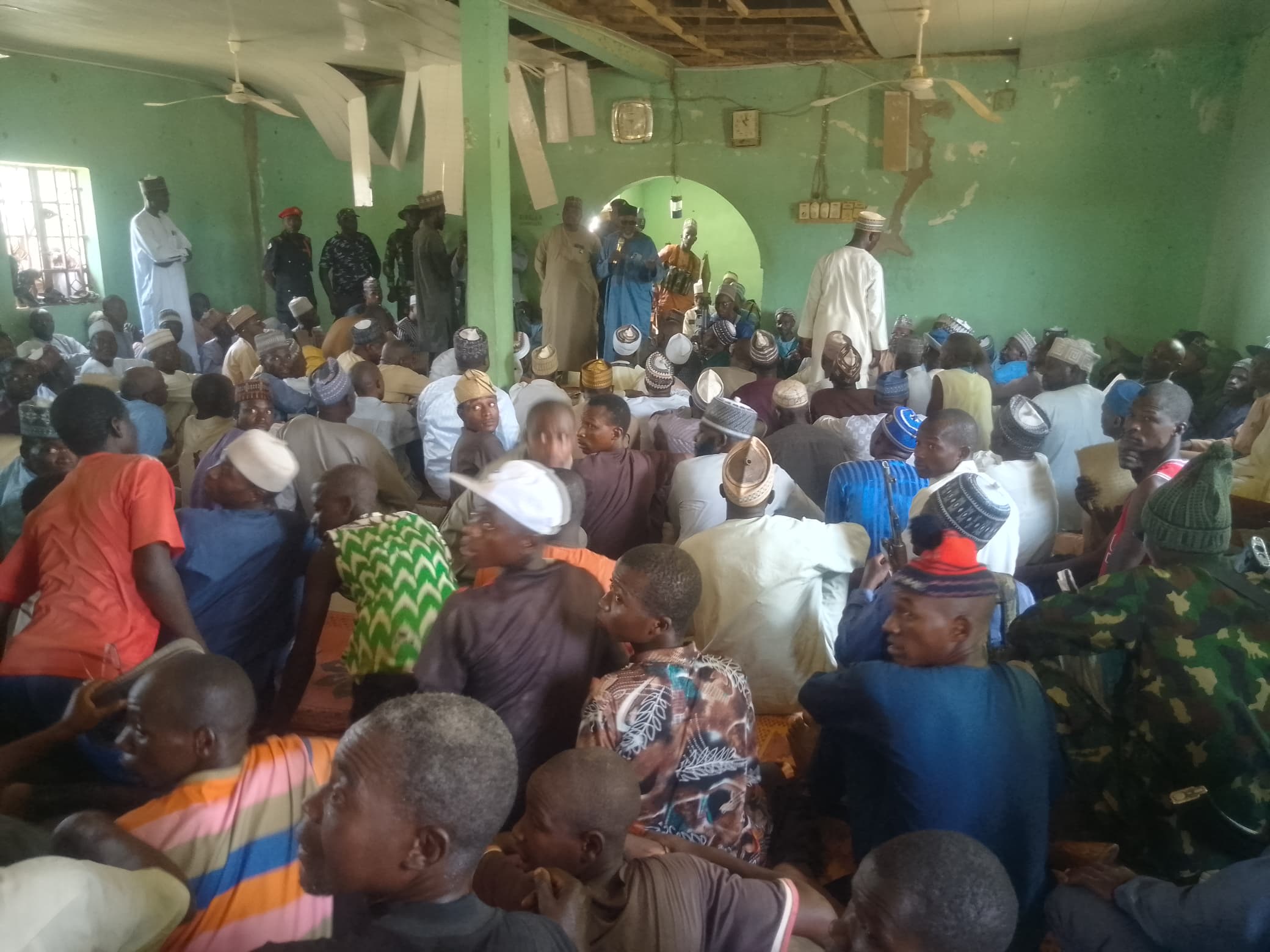Latest News
Jibia LG Offers Six-Year Education Sponsorship for Bandits’ Children Amid Peace Talks

Abdulrazak Ahmad Jibia
In a bold step towards lasting peace, the Jibia Local Government Area (LGA) of Katsina State has announced plans to sponsor six years of education for children of repentant bandits, as part of ongoing reconciliation efforts aimed at ending violence in the region.
The pledge was made during the third peace dialogue held on Monday, May 19, 2025, at Kwari village. The meeting was convened by the Jibia People’s Forum under the leadership of Alhaji Gide Dahiru and brought together key stakeholders, including Jibia LGA Chairman Hon. Sirajo Ado, his vice Hon. Aminu Aliyu, community leaders, representatives of the Nigerian Army, and known bandit leaders such as Audu Lankai.
As part of the initial peace agreement, the community demanded an end to attacks and protection for farmers during the cultivation season. In return, the bandits called for justice in livestock disputes and cessation of extrajudicial killings by security operatives.
Speaking at the forum, bandit leader Audu Lankai welcomed the peace initiative and urged for genuine dialogue devoid of political interference. He stressed the need for mutual respect and strict adherence to all agreed conditions. Another key figure, Sule Gurbi, noted that no attacks had been recorded in Jibia since the peace talks began, urging all sides to remain truthful and committed to the reconciliation process.
Addressing the gathering, Hon. Sirajo Ado praised the progress made so far, describing the peace process as essential to restoring stability in the area. He announced the LGA’s decision to sponsor six years of formal education for the children of bandits, saying the initiative is a strategic investment in breaking the cycle of violence and fostering inclusion.
The meeting also addressed key humanitarian challenges faced by residents and former combatants alike, including access to potable water, healthcare, and educational facilities.
Sheikh Barrister Ibrahim Sabi’u, who represented the Jibia People’s Forum, underscored the importance of community engagement in resolving disputes. He warned against any breach of the peace agreement and urged displaced persons to return home in preparation for the rainy season.
The peace meeting ended with a collective pledge to uphold the terms of the agreement. Observers have described the approach as a bold, community-driven model for conflict resolution in a region long plagued by insecurity, cattle rustling, and armed violence.

